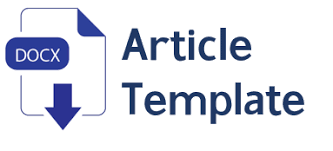Penerapan Teori Piaget dalam Pembelajaran Matematika di Sekolah Menengah Atas: Studi Kasus di Sekolah SMA Negeri 3 Medan
DOI:
https://doi.org/10.59086/jkip.v2i2.294Keywords:
Piaget's theory, mathematics learning, senior high school, cognitive development stages, problem-solvingAbstract
The purpose of this study is to examine further the theory of cognitive development by Jean Piaget on learning mathematics according to the level of thinking of children at the high school level. Sources of data used in this research are journals, articles, class observations, and teacher interviews. The data collection technique is library research and interviews. Data analysis uses content analysis. The results of this study indicate the cognitive development of children at the formal operational age stage (12 years - adults) in learning mathematics. Mathematics learning in high school is adjusted to its age stages. This is in accordance with the implementation of Jean Piaget's theory of development. Refers to how people grow, adapt, and change throughout their life's journey through physical development, personality development, socio-emotional development, cognition (thinking) development, and language development. In addition the level of understanding of models and methods as well as the handling used also varies. The results of the research can become the basis for teaching teachers so that learning becomes more effective, efficient, and right on target. Especially to realize the achievement of national education goals.
References
Basri, H. (2018). Kemampuan kognitif dalam meningkatkan efektivitas pembelajaran ilmu sosial bagi siswa sekolah dasar. Jurnal Penelitian Pendidikan, 18(1), 1–9. https://doi.org/10.17509/jpp.v18i1.11054.
Biantoro, N. O. P. H., Kristanti, F., & Mursyidah, H. (2020). Pengaruh penilaian kinerja dan kecerdasan emosional berdasarkan project based learning (PjBL) terhadap hasil belajar matematika siswa. Square: Journal of Mathematics and Mathematics Education, 2(2), 89-102. http://dx.doi.org/10.21580/square.2020.2.2.5257.
Fadhilah, S. 2009. Kemampuan Pemecahan Masalah Matematis dalam Pembelajaran Matematika. Prosiding
Seminar Nasional Penelitian, Pendidikan, dan Penerapan MIPA Fakultas MIPA, Universitas Negeri
Yogyakarta
Hasanah, Y. M., & Jabar, C. S. A. (2017). Evaluasi program wajib belajar 12 tahun pemerintah daerah kota Yogyakarta. Jurnal Akuntabilitas Manajemen Pendidikan, 5(2), 228-239. https://doi.org/10.21831/amp.v5i2.8546.
Hudojo, H. 2003. Pengembangan Kurikulum dan Pembelajaran Matematika. Malang: Jurusan Matematika
FMIPA UM
Manullang, M. (2014). Manajemen pembelajaran matematika. Jurnal Pendidikan dan Pembelajaran, 21(2), 208-214
Sopian, A. (2016). Tugas, peran, dan fungsi guru dalam pendidikan. Jurnal Tarbiyah Islamiyah, 1(1), 88-97.
Suherman, Erman dkk. (2003) Common Textbook Strtaegi Pembelajaran Matematika Kontemporer, Bandung: PT Remaja Rosdakarya.
Downloads
Published
How to Cite
Issue
Section
License
Copyright (c) 2023 Mesayu Ardiningtyas, Tua Halomoan Harahap, Elis Mardiana Harahap

This work is licensed under a Creative Commons Attribution 4.0 International License.
Tutwurihandayani Jurnal Ilmu Pendidikan
Publisher Lembaga Riset Ilmiah
© 2023

This work is licensed under a Creative Commons Attribution 4.0 International License.
Most read articles by the same author(s)
- Dina Safira Hutabarat, Tua Halomoan Harahap, Ellis Mardiana Panggabean, Penerapan Teori Pembelajaran Robert M.Gagne Pada Proses Belajar Matematika SMA , Tut Wuri Handayani : Jurnal Keguruan dan Ilmu Pendidikan: Vol. 2 No. 2 (2023): Juni 2023
- Linda Syah Putri, Tua Halomoan Harahap, Ellis Mardiana Panggabean, Meningkatkan Kemampuan Keterampilan Koneksi Matematis Melalui Penerapan Teori Belajar Bermakna Ausubel Pada Siswa Kelas IX SMP Muhammadiyah 7 Medan , Tut Wuri Handayani : Jurnal Keguruan dan Ilmu Pendidikan: Vol. 2 No. 2 (2023): Juni 2023


















